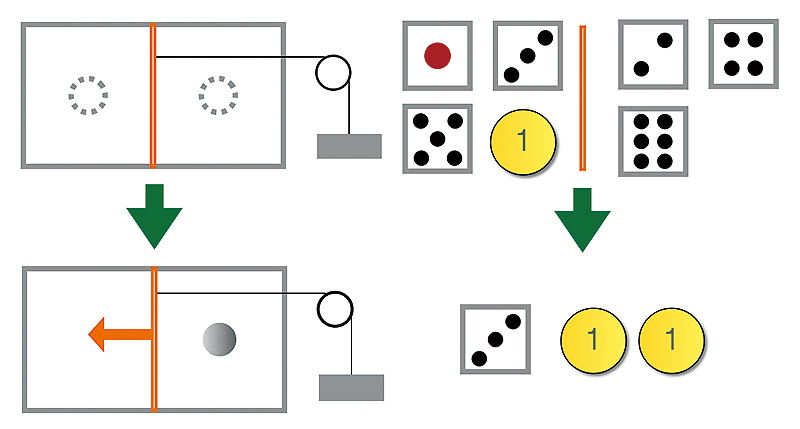Disclaimer: machine translated by DeepL which may contain errors.
No Board Games
Sousuke Ito, Lecturer, Universal Biology Institute

As the weather gets colder, I think that it is the season for board games. This is because the Japanese version of the board game that won the German Annual Game Prize is widely available around winter. Playing board games that have won this grand prize is a winter tradition for me.
There are many different types of board games that win grand prizes, but the board games that become popular have the following characteristics. First, there is randomness in the dice rolls, card shuffling, etc. Next, the player gambles against this randomness by expending resources in the game. Then, the game is won by collecting victory points under the randomness. Therefore, winning or losing a board game is a test of whether or not you have the best strategy for this gamble. It is one of the best parts of board games to discuss whether your strategy is good or bad.
Randomness in board games is caused by physical processes such as the roll of a die or the shuffling of cards. Since randomness is caused by physical processes, "board games" in which players collect "victory points" by adopting appropriate strategies under randomness can be the subject of physics. However, the "winning points" in this "board game" may be the work done in a heat engine, the transmission rate in accurate information communication, or the degree of adaptation in the evolution of a cell. The study of how to collect these victory points in an appropriate setting and the expected value of the victory points when the optimal strategy is adopted can be done by using mathematical formulas.
Historically, studies involving randomness and gambling go hand in hand. For example, probability theory began with a discussion of gambling by Blaise Pascal and Pierre de Fermat. Even today, there is a game-theoretic probability theory that constructs a modern probability theory in connection with gambling. Information theory started as a mathematical theory of communication by Claude Elwood Shannon, but was later reformulated by John Larry Kelly, Jr. (John Larry Kelly, Jr.) formulated it in terms of the expected limit of profit in gambling.
This is the story of my personal research. Because of its general framework, Kelly's information theory can be applied to gambling on physical entities. We can take Maxwell's daemonNote 1 , a thermodynamic story, as a gamble whose winning point is to extract work from the randomness of the motion of molecules.

|
I arrived at this idea while working on Maxwell's daemons as a student, and combined various findings several years later to describe in one paper a generalization of the second law of thermodynamics involving information flow and its relation to Kelly's information theory [S. Ito, Sci. Rep. 6, 36831 (2016 ). . This is an example of how the view of things cultivated through board games has influenced research.
In 2021, it is difficult to get together face-to-face to do anything. However, there are various online tools for board games, and it would be a great opportunity to have an online board game party, rather than an online drinking party, using these tools. Since everyone actively participates in board games, it can be more exciting than an online drinking party. In these days when it is difficult to deepen friendships, why not try deepening exchanges by holding an online board game party?
Note 1: A demonic entity that makes it possible to achieve things that seemingly violate the second law of thermodynamics by observing and controlling the motion of individual molecules, as proposed by James Clerk Maxwell in the 19th century. A theoretical model of Maxwell's demon by a single molecule ideal gas in a box was proposed by Leo Szilard in 1929, where the relationship between information theory and thermodynamics was first pointed out.
Faculty of Science News welcomes essay submissions. We welcome all submissions, regardless of whether they are self-recommended or not. We especially welcome submissions from Faculty and graduate students. However, the Communications & Public Relations Committee will decide whether or not to publish your essay.
Please send your contributions to rigaku-news@adm.s.u-tokyo.ac.jp.
Published in the March 2021 issue of Faculty of Science News


